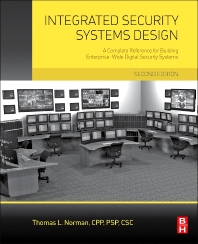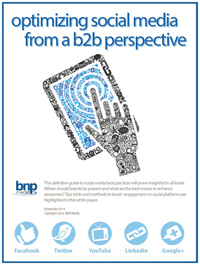The U.S. District Court in Georgia recently refused to grant a summary judgment filed by a defendant in a case involving a personal emergency response system (PERS).
The plaintiff’s mother suffered from chronic obstructive pulmonary disease. The plaintiff and her son researched different medical alert devices on the internet and ultimately made an online purchase for which the mother entered into a contract with a PERS company.
Subsequently, one day while home alone the mother was having trouble breathing and was able to activate the PERS system. An emergency response system operator responded to her call and asked the local 911 service to dispatch an ambulance. However, the operator did not notify the local 911 service when she lost contact with the plaintiff’s mother. The operator also failed to tell the 911 service that the plaintiff’s mother was home alone with the doors locked. The paramedics had to wait for a fire crew to access the house, delaying emergency treatment by at least 18 minutes. The plaintiff’s mother went into cardiac arrest and died three days later.
The plaintiff brought an action under Georgia’s Fair Business Practices Act and Georgia’s Unfair and Deceptive Practices Towards the Elderly Act. The plaintiff also asserted negligence claims against the PERS company and the company it contracted with to monitor the PERS system.
The defendants, the PERS company and the monitoring company filed a summary judgment motion on all of the plaintiff’s claims.
Under the subscriber agreement, the PERS company reserved the right to appoint an agent to perform its monitoring service obligations. Under the terms of the agreement, when the PERS company receives a “signal from a subscriber’s system,” the monitoring company “shall make commercially reasonable efforts to transmit notification of the signal promptly to the first responders and the persons whose names, telephone numbers, email, SMS and other electronic addresses as set forth on the notification instructions received by the monitoring company as to each subscriber.”
When the monitoring company received the signal in question, the operator entered the following information into her log: “Help is needed . . . medical emergency, can’t breathe,” along with the subscriber’s address. The monitoring center operator contacted 911 and informed the operator she was calling from the PERS company about a medical mobile alarm. The monitoring center operator answered questions asked by the 911 dispatcher, including the subscriber’s name, address, call back number and whether she was in a house, an apartment or a business.
The monitoring center operator reported that the subscriber “said that she’s having trouble breathing” and the 911 operator responded, “I’ll get someone out there.” The operator did not ask the subscriber if gaining entry into the home would be a problem. The 911 operator dispatched an ambulance. Emergency personnel arrived and notified the 911 operator that they had tried the doors and no one answered. The 911 operator tried to call the subscriber three times, but there was no answer, whereupon a paramedic requested a fire engine for entry into the house.
A firefighter entered the home through a bedroom window and found the subscriber still breathing. According to the plaintiff’s medical expert, if the paramedics had been able to reach the subscriber and render aid to her when they first arrived on the scene, instead of between 18 and 23 minutes later, the woman’s cardiac arrest could have been avoided.
The court determined that a juror could find that the deceased reasonably relied on the representations of the PERS company in electing to subscribe to its medical alert system and that these representations were false because the PERS operators were not 911 certified and, furthermore, did not:
- obtain the necessary information from the subscriber;
- properly triage the subscriber’s needs;
- properly respond to the loss of contact with the subscriber;
- respond to the emergency call in a way that was calculated to insure the subscriber received prompt medical attention.
Finally, a juror could conclude that the PERS company’s false representations contributed to the subscriber’s death. Therefore, the court denied the PERS company’s motion for summary judgment on the Fair Business Practices Act.
As for the negligence claim, the court found that the subscriber relied on the PERS company’s representation that it would provide emergency services that were at least as good as those she would receive by calling 911 directly. The court found that genuine fact disputes exist on whether the defendant owed the subscriber a duty of care by assuming responsibility with providing her with necessary emergency service.
The defendant argued that even if there are genuine fact disputes on the plaintiff’s negligence claim against them, a contractual limitation of liability provision is enforceable and applies to limit damages.
Under Georgia law, the limitation of liability clause in which a business seeks to relieve itself from its own negligence is valid and binding and are not void as against public policy unless they purport to relieve liability for acts of gross negligence or willful or wanton misconduct.
The court pointed out that here, a reasonable juror could conclude that the defendant’s conduct amounted to gross negligence, thus precluding application of the limitation of liability clause. The PERS company chose to categorize the $250 limit as “liquidated damages” in their own contract. The court pointed out that a liquidated damage provision is only “enforceable if (1) the injury caused by the breach is difficult or impossible to estimate accurately; (2) the parties intended to provide for damages rather than a penalty; and (3) the sum stipulated is a reasonable pre-estimate of the probable loss.”
The court pointed out that the last element is clearly not here and for these reasons the court found that the limitation of liability clause would not limit the plaintiff’s claim. Therefore the court denied the defendant’s summary judgment motions and ordered the matter to be set for trial.






